Children told not to go out alone amid hunt for Japanese macaque which broke out of Highland zoo – as experts draft in drones to find on-the-run primate in Operation Monkey Business
Children have been told not to go outside alone during the ongoing hunt for an escaped monkey as drones are used to hunt the primate.
Drone pilots and wildlife experts descended on Kincraig yesterday as the search for an escaped monkey entered its second day.
Thermal imaging drones were deployed to try to track down the Japanese snow monkey, which managed to escape from its enclosure at the Highland Wildlife Park in nearby Kingussie.
One parent said security measures had been taken at a nearby primary school after the monkey was spotted on the premises.
Parents of children attending Alvie Primary School were told that the youngsters could only play outside in small groups due to the sightings.
Children have been told not to go outside alone during the ongoing hunt for the escaped monkey
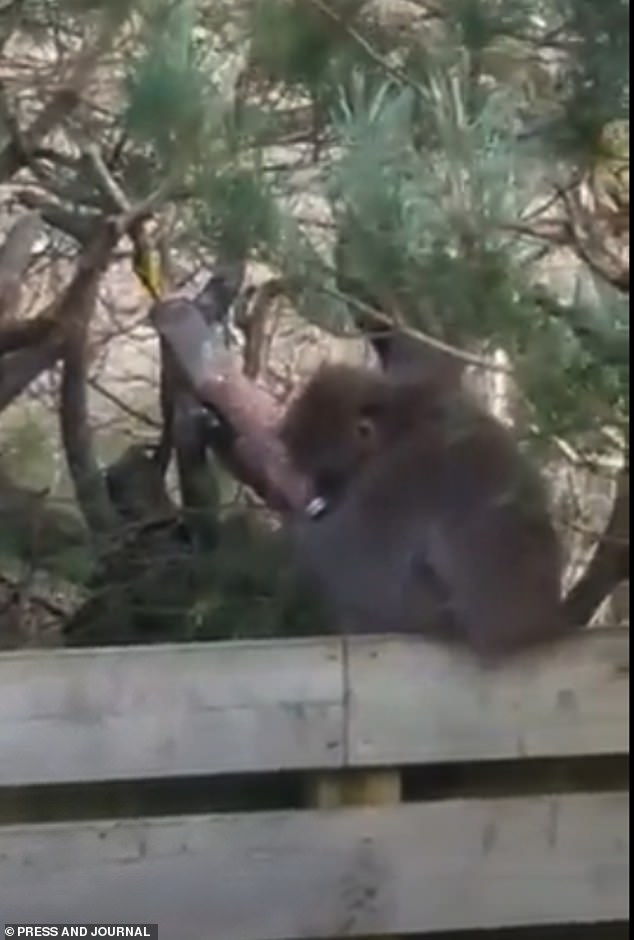
Observations of the monkey show that the primate is walking freely after its escape
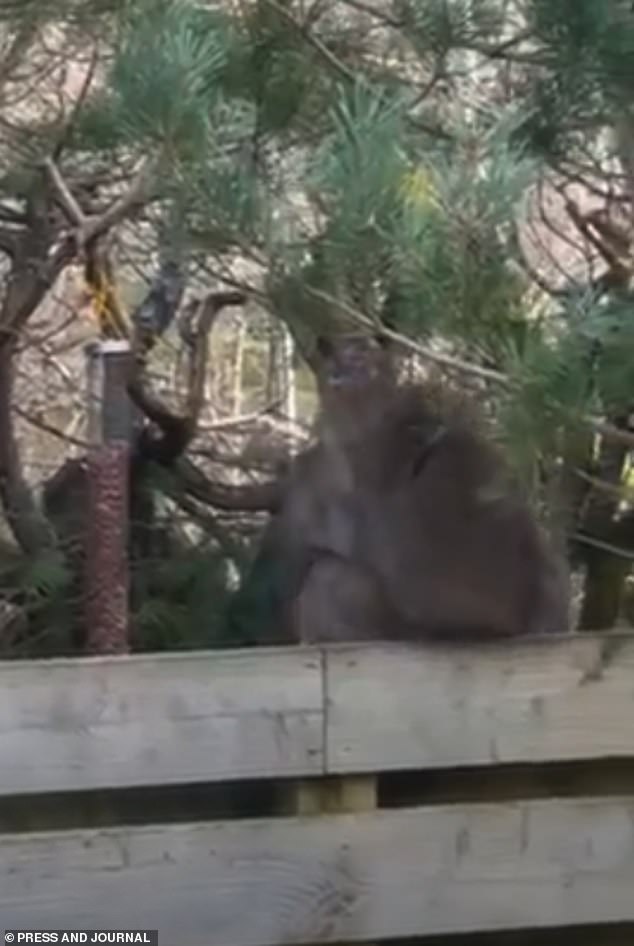
Several sightings have been reported around Kincraig, but it has managed to evade capture
He is believed to have fled the Inverness-shire park at around 7am on Sunday after challenging another primate for leadership. Several sightings have been reported in and around Kincraig, but the animal has so far managed to evade capture.
A park spokesman said staff had been out with thermal imaging drones after it was spotted near the A9 yesterday. But while they were able to spot a host of native wildlife, including rabbits, foxes and buzzards, there was no sign of the monkey.
As darkness fell last night, staff set a humane trap with food at the spot where the monkey was last seen, hoping to finally capture it.
The spokesman said it was breeding season and the young male – third in line for leadership – may have been trying to challenge for dominance, but “with adrenaline running high, he braved the fence rather than brave the fight.”
Speaking to the BBC, the park’s operations manager Keith Gilchrist, who is part of the team trying to track down the monkey, said: ‘It’s a very dynamic group of animals with quite a strong hierarchy. At this time of year tensions run a bit high and arguments sometimes arise over breeding rights.’
Park chiefs said last night that while the monkey, also known as the Japanese macaque, is unlikely to pose a threat to the public or pets, it should not be approached.
Locals in Kincraig, where the animal has been spotted trying to steal food from garden bird feeders, have also been urged to keep food down in the hope that if it gets hungry it will return to the park.
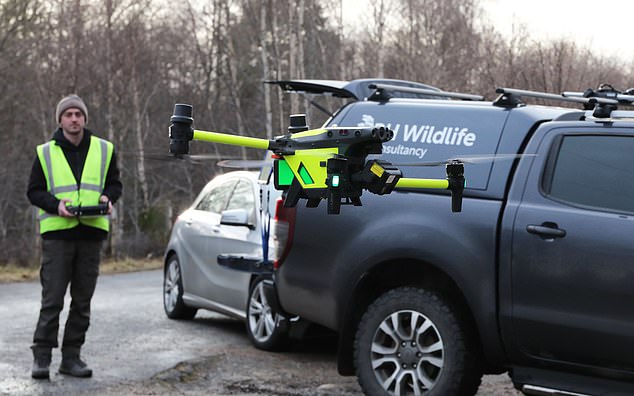
Drone operator Ben Harrower joins the search for missing monkey
But efforts to capture the runaway have so far been in vain, despite a number of sightings.
Joseph Murphy was gardening Sunday afternoon when he was asked to go inside by park staff after the monkey was spotted in the nearby forest. But the escaped man managed to avoid capture by shooting behind a tree before heading off to another forest area.
Mr Murphy said: ‘I went upstairs and looked out and the game park people were staring at the trees and he just ran after one of them as they were looking the other way.
‘It was really a comic strip. I just hope they can get him back.”
He believed their intention was to attempt to tranquilize the animal so it could be safely returned to the park.
Raylene Bryan, 50, also managed to catch a glimpse of the monkey – after initially thinking she saw a dog walking around outside her garden.
She said: ‘The crows were flying around and they seemed a bit excited.
“So I looked outside to see if I could see anything else, because we do see deer and squirrels, and I saw what looked like a gray-brown dog. Then he stood on his hind legs and ran into the forest.
‘It didn’t stick. It went pretty fast.
“Normally we get excited when we see a deer on the back end, but this is definitely something to talk about.”
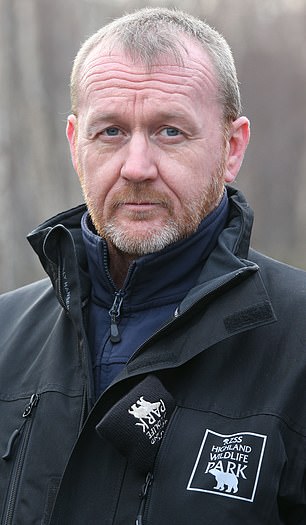
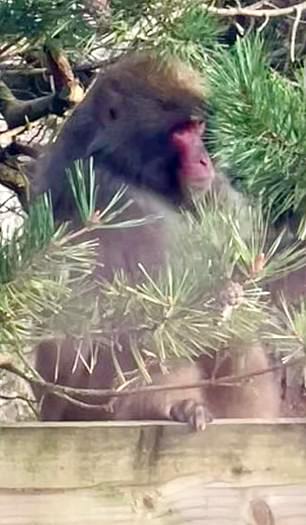
Keith Gilchrist is part of the team searching for the macaque, which has been spotted in local gardens in Kincraig (right)
The monkey is part of a group of 34 Japanese macaques living in the park and while there are no concerns that it will survive the freezing temperatures at night, it is in an unfamiliar environment and may be disoriented.
In the wild, animals search for food and travel within a radius of several kilometers, looking for new food sources and a new place to sleep every day.
Darren McGarry, head of living collections at the Royal Zoological Society of Scotland, which owns the Highland Wildlife Park, said: ‘We are doing everything we can to locate the macaque.
‘Locals are encouraged to bring in any food kept outside, such as food waste bins and bird feeders, to encourage the monkey to return to the park as soon as it is hungry.
‘Although we do not expect the monkey to pose a threat to the public or pets, it should not be approached.’
Male Japanese macaques grow to about 60 cm in height and weigh about 180 grams.
The animals are highly intelligent and are known to wash their food before eating it.
They live in troops and adhere to a strict social hierarchy, inheriting their status from their parents at birth.
